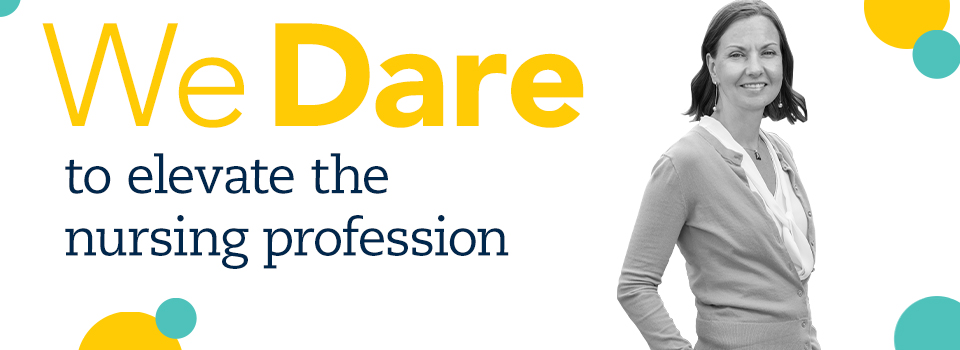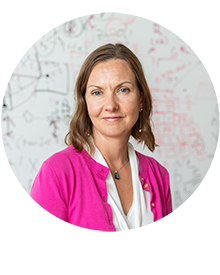We Dare to elevate the nursing profession

When Olga Yakusheva’s mother was diagnosed with terminal cancer, she made an observation that would change her career. During multiple hospitalizations in her hometown of Almaty, Kazakhstan, her mother’s outlook, behavior and health status changed depending on who was in the room.
“The differences with nurses was noticeable day to day,” said Yakusheva. “When a certain nurse was taking care of her, my mother seemed to have better blood pressure and she felt better, slept better and ate better.”
The opposite was true with another nurse.
“She was a good nurse and seemed like a nice person, but she just always seemed stressed and rushed,” said Yakusheva. “She seemed to tug and pull on my mom and sometimes spoke abruptly to her. My mom always felt worse when she had that nurse.”
Yakusheva wondered if the changes were because of something specific about her mother and how she reacted or if other patients had similar experiences. As an economist, it’s no surprise that she started to think about how to objectively measure the actions and effects.
She is the first researcher to explore measuring individual nurse performance by looking at patient outcomes. Most health care professions, including physicians, are already evaluated individually, but nurses are generally evaluated by unit. Yakusheva is leading a series of studies looking at various aspects of nursing care such as how well a nurse prepares a patient for discharge and that connection to readmissions.
“Education and experience matter, but those characteristics only explain around 10 percent of the differences,” she explained. “That means 90 percent of the differences are not explained by what we typically look at in evaluating nurses, which means we don’t know what that is.”
Another study investigated how often catheter-associated bacteriuria, which can lead to urinary tract infections, was found in intensive care unit patients. In a sample of nearly 100 nurses, she found that 75 percent of all bacteriuria cases were linked to only a quarter of the nurses.
“It’s not about blaming the nurses,” said Yakusheva. “It’s about finding out the reasons why. Maybe they are assigned to rooms where the hand sanitizer is difficult to access or maybe they are dealing with burnout.”
Yakusheva stresses that her focus is intended to be informative, not punitive.
“When you have individual-level performance variability, no matter how good the core unit or hospital is, some patients will receive lower quality care,” she said. “We can standardize systems of care as much as possible, but as long as there are people who are consistently below average we need to figure out why.”
She acknowledges that nursing care is inherently team-based, but she is determined to break the “a nurse, is a nurse, is a nurse,” myth.
“I think it’s disrespectful to the nursing profession when people say that, because when it comes to high-quality patient care every nurse matters,” said Yakusheva.
Yakusheva also understands that, as an economist, she cannot do this work without nurses.
“Economists are methodologically trained to take on just about any topic, but I truly care about this work and improving patient care,” she said. “I made the leap from a business school to the U-M School of Nursing so I can have colleagues who are expert nurses and can share concerns and provide guidance. This work needs to be done, and it needs to be done with nurses, by nurses. The U-M School of Nursing has been a great home for it.”
“This work needs to be done, and it needs to be done with nurses, by nurses. The U-M School of Nursing is a great home for it.”
— Olga Yakusheva, Ph.D.
Associate Professor






